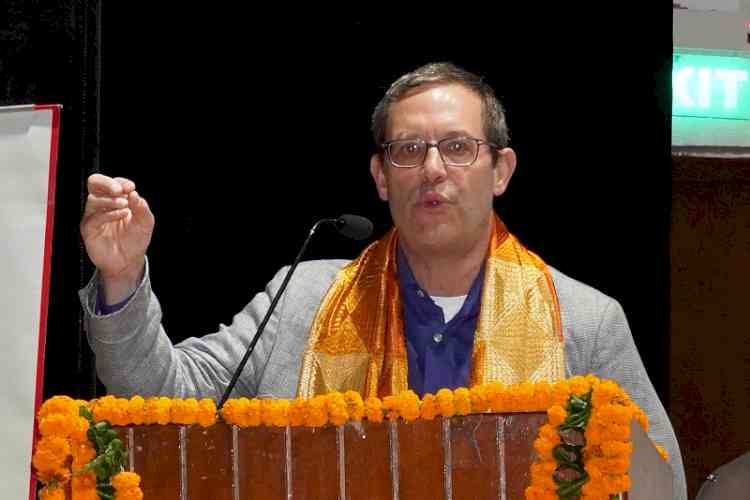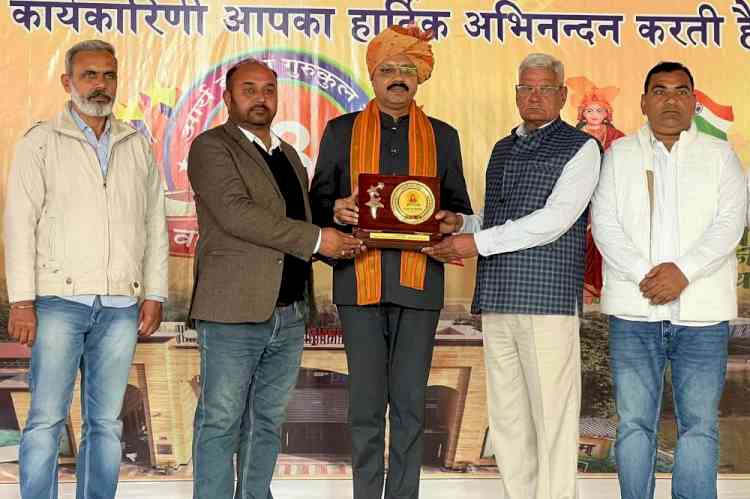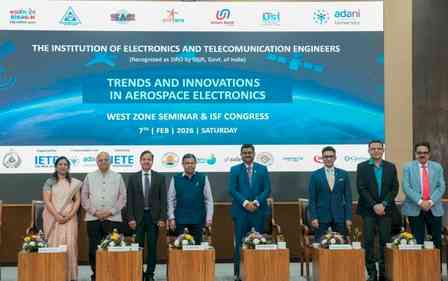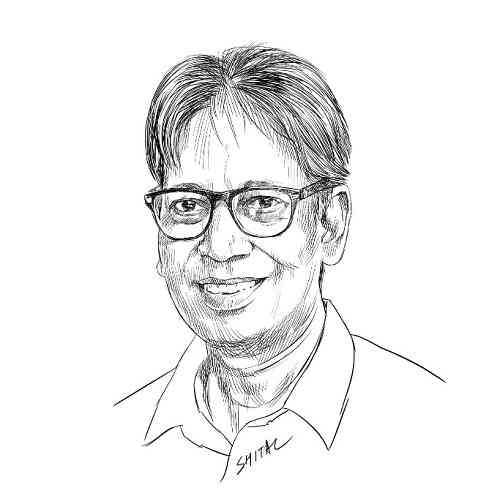Prof. Judd L. Walson Delivers Shri Sat Paul Mittal Memorial Lecture on Translating Evidence into Action in Public Health
Noted globally acclaimed Infectious Disease Physician and Epidemiologist Prof. Judd L. Walson of the Johns Hopkins Bloomberg School of Public Health, USA, today delivered the ‘Shri Sat Paul Mittal Memorial Lecture’ on “Public Health in a Changing World: The Role of Implementation Science in Translating Evidence into Action” at Panjab University, Chandigarh.

Chandigarh, September 9, 2025: Noted globally acclaimed Infectious Disease Physician and Epidemiologist Prof. Judd L. Walson of the Johns Hopkins Bloomberg School of Public Health, USA, today delivered the ‘Shri Sat Paul Mittal Memorial Lecture’ on “Public Health in a Changing World: The Role of Implementation Science in Translating Evidence into Action” at Panjab University, Chandigarh.
The Shri Sat Paul Mittal Memorial Lecture, instituted in 2018, is organised to honour the legacy of Shri Sat Paul Mittal, parliamentarian and visionary leader. The prestigious lecture serves as a platform for intellectual exchange, fostering dialogue and innovation in the fields of education, governance, and public welfare.
In his 45-minute lecture, Prof. Walson examined the challenge of the “know-do gap” in public health, citing examples such as Oral Rehydration Solution and Oral Polio Vaccine to illustrate why proven interventions often fail to reach their intended impact. He advocated for implementation science as a structured approach to scale interventions and introduced the concept of a Target Policy Profile to guide the design of public health programs. Drawing on his Deworm3 Trial research, he highlighted the need for scalable and cost-effective models adoptable by governments.
The lecture also mentioned historical lessons, with Prof. Walson recalling Dr. John Snow’s decisive action during the 1854 cholera outbreak as an example of evidence-based interventions saving lives. In the interactive question and answer session, he emphasised capacity-building at the community level, noting that people must not only be told what to do but also equipped with the tools and systems to make change possible.
In her welcome address, PU Vice Chancellor Prof. Renu Vig reflected on PU’s remarkable journey since its establishment on October 1, 1947, tracing its evolution from Amritsar to Delhi and finally to Chandigarh. She highlighted its growth into one of India’s premier academic institutions, mentioning key milestones such as the founding of the University Institute of Engineering and Technology (UIET) and the Bharti Chair for Excellence in Education. She also emphasised the significance of the Shri Sat Paul Mittal Memorial Lecture series, which began in 2018 and has featured prominent speakers like Prof. D.N. Singh, Dr. Baskar Ramamurty, Deepak Tyagi, and Avinash Aggarwal.
Director UIET Prof. Sukhwinder Singh moderated the proceedings and introduced the dignitaries.
In their speeches, representatives from the Indian Association of Parliamentarians on Population and Development (IAPPD) including Mr. Manmohan Sharma, Mr. Avinash Rai Khanna, and Dr. Prem Talwar emphasised the integration of education, health, and social responsibility in national development, introducing concepts such as Education Social Responsibility and stressing compassion, community engagement, and effective implementation of policies.
Avinash Rai Khanna paid tribute to Sat Paul Mittal’s legacy, recognising him as a dynamic leader who rose from student activism to becoming an MLC, Deputy Home Minister, and a Member of the Rajya Sabha. Emphasising the moral importance of compassion, he remarked, “If you take care of the elder, you will get God.”
Dr. Prem Talwar highlighted the balance between education and health, emphasising that both pillars are equally essential for sustainable development, and stressed the importance of effectively implementing policies to create meaningful change.
The lecture was attended by DUI Prof. Yojna Rawat, Director RDC Prof. Meenakshi Goyal, PU Registrar Prof. Y.P. Verma, and a large number of students, researchers, and faculty members, which included distinguished academicians, policymakers, researchers, and public health advocates. The engaging lecture focused on bridging the gap between evidence and practice in healthcare, emphasising how robust systems, supply chains, training, and community engagement can ensure effective and sustainable health outcomes.



 City Air News
City Air News 










